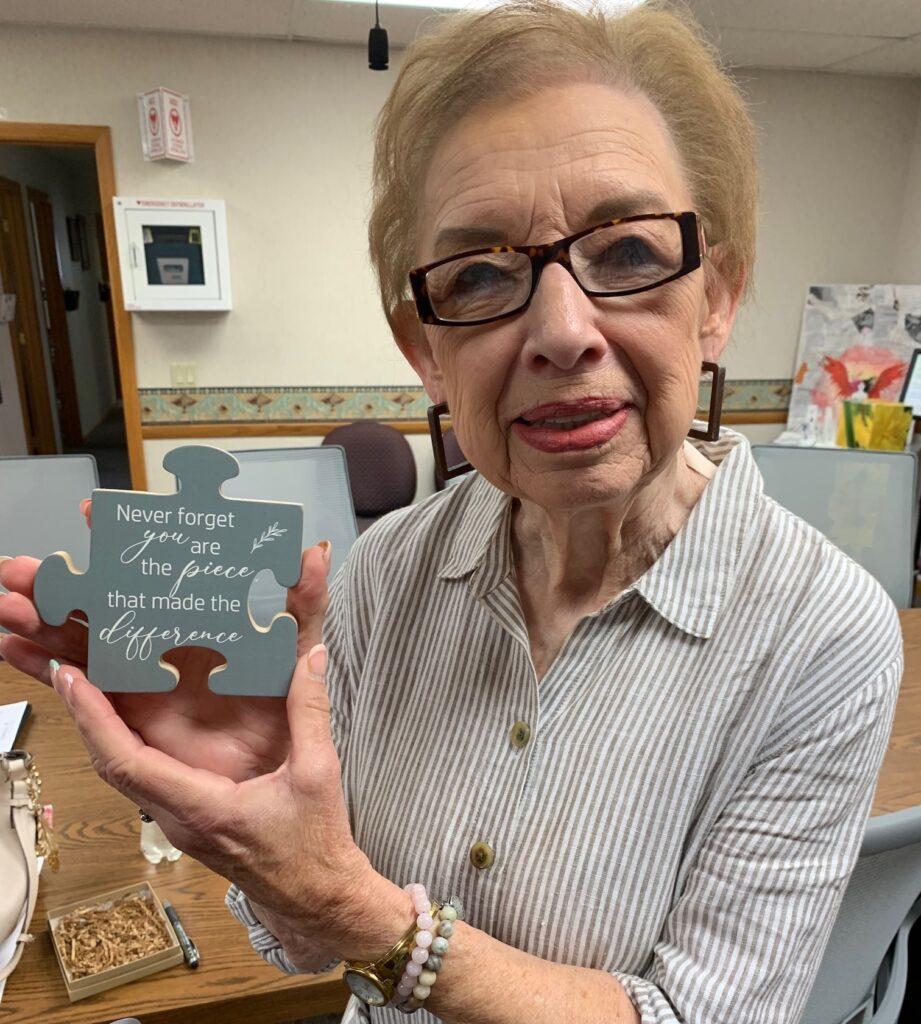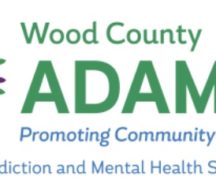By JULIE CARLE
BG Independent News
The Wood County Alcohol, Drug Addiction and Mental Health Services Board approved a $20 million “System of Care Budget” on Monday ensuring Wood County residents will continue to have a wide range of mental health and addiction services available in the coming year.
The source of funds includes allocated federal, state and local levy dollars. For the coming fiscal year, which starts July 1 and runs through June 30, 2025, the county levy is expected to provide $9.2 million; federal funds almost $7.9 million; and state funds nearly $1.9 million.
The primary contracts approved for the next fiscal year are for Harbor, $3,690,935; Children’s Resource Center, $2,666,006; Unison, $1,835,034; Wood County Educational Services, $1,144,043; OhioGuidestone, $513,212; Zepf Center, $510,418; The Cocoon, $426,615; Harbor Women’s Residential/Recovery, $340,815, which are flow-through funds from Ohio Mental Health and Addiction Services; National Alliance on Mental Illness Wood County, $339,819; Addiction Response Collaborative, $146,427; and H.O.P.E. in Fostoria, $13,846 for H.O.P.E. in Fostoria.
WCADAMHS Executive Director Amanda Kern had explained rationale for funding services at a previous meeting.
Harbor services covered in the contract include a forensic and adult care facility monitor, which is for Wood County residents who have been found not guilty by reason of insanity and placed in an adult care facility; a vocational program known as Individualized Placement and Support to help individuals with serious and persistent mental illness be successful through the application and employment process; and continuation of the Connection Center in Bowling Green.
Several residential services at Harbor also received support from the board including the Housing Assistance Program, community residential for individuals with the highest need, Transition to Independence Process for individuals aged 18-24 who are struggling to become independent, Housing and Urban Development, and semi-independent support systems to help become successful residents with fewer hospitalizations and reduced mental illness symptoms.
Harbor also will receive some State Opioid and Stimulants funds for community outreach, to provide engagement for substance use disorder consumers to access treatment.
The board contract with Children’s Resource Center covers the residential unit, crisis/ mobile response and stabilization services, early childhood intervention and sexual abuse prevention services, and transportation.
Also, CRC’s Functional Family Therapy initiative “is a vital part of the continuum of care for youth with serious emotional disorders, who receive intensive, community-based services to maintain or improve their functioning as a family,” Kern said.
State Opioid and Stimulants-funded programs for Unison include a substance use disorder navigator and Medication Assisted Treatment. The WCADAMHS contract also includes mobile crisis services, forensic services for Wood County Jail, a hospital liaison to help people returning to the community following psychiatric hospitalization, and health officer training courses to expand health officer certification across Wood County.
The Educational Service Center contract covers staffing and administration costs for their programs and a new community-based diversion program developed in partnership with the Juvenile Detention Center, Probate and Court. The program will divert charges to resources or treatment for at-risk youth. Kern explained the first two years of the pilot program, funded through a grant, resulted in “most children never stepping foot in the courthouse.” The center continues to seek grant funding to support the program, she said.
The county board agreed to fund a criminal justice liaison and criminal justice screener for OhioGuidestone. The agency assists with release planning and post-release support for individuals incarcerated at Wood County Jail and with screening the individuals for mental health and substance use disorders, also providing help for ongoing treatment post-release if needed. The agency also provides community transition support for immediate needs upon release from prison.
The new Expressive Arts program will receive startup funds for supplies and to help train a therapist in expressive modalities, Kern reported.
State Opioid and Stimulants-funded programs at OhioGuidestone include Peer Recovery Support, Rapid Access Medication Assisted Therapy, and Project Direct Link to provide medication to inmates to help reduce the post-release risk of relapse.
Zepf Center funding covers services at the Male Recovery House in Cygnet and fee-for-service.
The Cocoon contract covers program expenses and the SOS-approved program funds.
The WCADAMHS contract for NAMI Wood County assists with program costs for peer education, CIT, Mental Health First Aid, and Question Persuade Refer training. Funds will also pay for a fiscal agent for the Suicide Prevention Coalition.
The contract for the Addiction Response Collaborative provides funds for program costs, and funds for H.O.P.E. in Fostoria will help provide substance use and mental health prevention services and recovery support.
Discretionary funds in the System of Care Supports budget cover marketing, the levy campaign, mini-grants, workforce development, the suicide prevention program, disaster response, and the addiction task force
The board also provides “direct” funding for items including legislative updates, ambulance transport, Fostoria School Project, Net Plus transportation probate and legal fees, bed days for adult care facilities, Family and Children First Council, First Responder Support, Assisted Outpatient Treatment, Guardianship Services Board and George Mason University re-entry program.
Other contracts approved included:
-Arrowhead Behavioral Health will provide psychiatric hospital and sub-acute detoxification services at a rate of $800 per day up to $35,000.
-Mercy Health-St. Vincent Medical Center will provide inpatient psychiatric services at a rate of $850 per day up to $50,000.
-Fairfield Great Office Solutions Helper to provide claims management to meet the needs of the board in reimbursing providers for services rendered; the contract is for $24,000 for the fiscal year.
-Two attorney contracts to provide legal services for the Wood. County Assisted Outpatient Treatment program at $100 per hour not to exceed $10,000 for the year.
CHESS Health agreement extension fails to pass
An agreement to extend a contract with CHESS Health after the current contract expires June 30 was not approved. The board considered a resolution to extend the contract until March 2025 at no extra cost to the county board. After nearly nine months with little to no progress by the company, including no monthly update on the company’s efforts, the board’s tied 4-4 vote resulted in not continuing the contract after June 30.
Since April, CHESS Health has implemented an online screening tool that is on the WCADAMHS website and 171 surveys have been completed, according to information provided to Aimee Coe, director of community programs.
Coe said the company “struggled with getting the service up and running because of staff turnover.”
Since April, “We have been working in good faith negotiations to work through the issues,” said WCADAMHS Executive Director Amanda Kern.
“Because there is no more money due, let’s ride out the extension,” suggested board member Brandy Laux.
“I don’t have faith that in the next nine months anything will change,” said board member Matthew Battiato before the vote was taken.

Fond farewell for years of service
Monday’s meeting was the last meeting for board member Judy Ennis, whose term limits end June 30 after more than 18 years on the board. Ennis, known for her dedication to the community through her service on numerous boards, received a gift to recognize the difference she has made as a board member during her tenure.
“This is the best staff and board in the 18 years I’ve been here. I am confident the board is in the right place,” she said.
The 2024-25 board officers were elected. Frank McLaughlin continues as board president; Karen Baron is the new vice president; and Leslie Miller and Matthew Battiato continue as secretary and treasurer, respectively.





